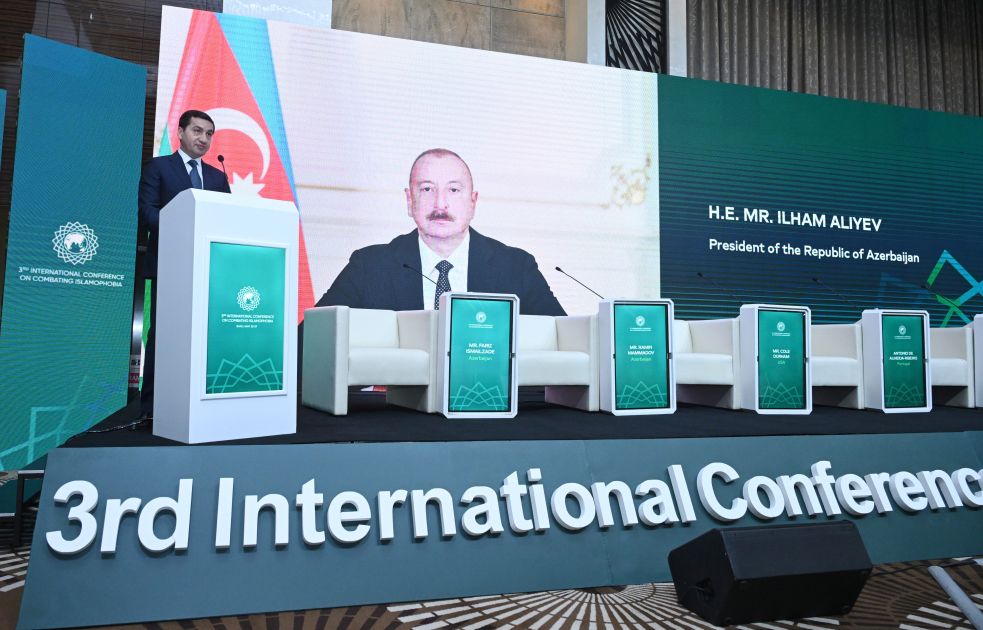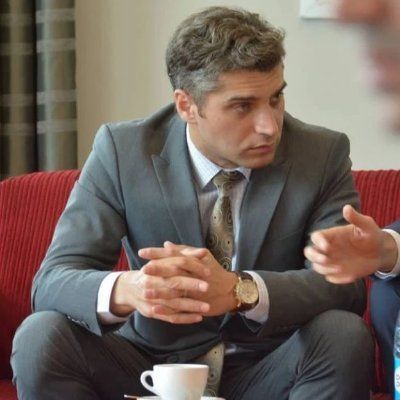Baku conference confronts global rise of institutional Islamophobia [OPINION]
![Baku conference confronts global rise of institutional Islamophobia [OPINION]](https://www.azernews.az/media/2025/05/26/64-0613-486848.png)
When the United Nations General Assembly passed its resolutions to combat Islamophobia, the global community formally acknowledged what has long been obvious to millions: anti-Muslim hatred is not only real, but rapidly deepening. Azerbaijan, a vocal proponent of multiculturalism and interfaith harmony, has welcomed these resolutions and called for their immediate implementation. Yet the stark truth remains, Islamophobia is no longer a fringe attitude. It is a transnational phenomenon, and in many cases, it has become codified into policy.

As the international conference “Islamophobia in Focus: Unveiling Bias, Shattering Stigmas” convenes in Baku this week, the urgency of its agenda could not be clearer. With scholars, diplomats, religious leaders, and civil society actors from nearly 40 countries in attendance, the event marks not just the third anniversary of the United Nations’ International Day to Combat Islamophobia, but a collective reckoning with a phenomenon that has long festered in plain sight, sanctioned, institutionalized, and, in many cases, willfully ignored.
In his address to the conference, Azerbaijani President Ilham Aliyev gave voice to a growing global frustration: “Hostility towards Islam, hatred and intolerance against Muslims, and anti-Islamic sentiment are becoming increasingly widespread and severe.” His words cut to the core of the crisis, a toxic blend of political opportunism, historical amnesia, and strategic hypocrisy in Western capitals, where Islamophobia has not only been tolerated but, in some cases, adopted as de facto policy.
The starkest irony lies in the contradiction between liberal democratic values and the reality of state-sponsored Islamophobia. President Aliyev rightly condemned “some countries that once engaged in the slave trade, pursued policies of occupation and colonialism, and committed acts of genocide, yet now present themselves as democratic countries safeguarding human rights.” The historical roots of racial and religious supremacy have simply been repackaged into anti-Muslim tropes, now legitimised under the banners of secularism, security, and free speech.
Far from isolated acts, Islamophobia has metastasised into a structured system of exclusion: discriminatory laws, attacks on mosques, desecration of Islamic cemeteries, restrictions on Muslim attire, and the incendiary desecration of the Holy Qur’an — all shielded by the cynical misuse of “freedom of expression.” These acts are not anomalies; they are symptoms of a deeper affliction — one that conflates an entire faith with extremism and weaponises cultural fear to secure political gain.
The role of media and political institutions in amplifying this narrative cannot be overlooked. As President Aliyev warned, “Certain media organisations… deliberately equate Islam with extremism… portraying it as a source of threat.” The proliferation of such narratives across digital platforms — often amplified by algorithms and unchecked by regulation - has helped normalise a discourse that treats over 1.8 billion Muslims as suspect.
Perhaps most disturbing is the complicity of institutions that should act as safeguards against such prejudice. “Bodies like the European Parliament and the Parliamentary Assembly of the Council of Europe, driven by bias and double standards, contribute to the spread of anti-Muslim sentiment,” Aliyev stated, indicting those who claim to defend human rights while turning a blind eye to systematic discrimination against Muslim communities.
The Azerbaijani experience itself is a case study in the consequences of global apathy. During the three-decade Armenian occupation of Karabakh, not only were mosques and cemeteries desecrated, but Azerbaijani cultural identity was methodically erased. “Driven by pure religious bigotry and Islamophobia, certain circles in the West have turned a blind eye to Armenia’s occupation of our lands,” said Aliyev. The message is sobering: when Muslims are the victims, international condemnation is too often absent.
Yet Azerbaijan also offers an alternative vision, one rooted in inclusion, resilience, and intercultural dialogue. A multiethnic and multiconfessional society, it has long championed religious coexistence and Islamic solidarity. “Islam is a religion of peace, solidarity, and mercy,” Aliyev reminded the conference, urging the Muslim world to “stand as a unified front in combating Islamophobia.”
The Baku conference is not just a symbolic gathering. It is a clarion call, a demand to confront entrenched prejudices, reassert the dignity of Islamic civilisation, and hold those who perpetuate religious hatred accountable. It must also be a launchpad for concrete strategies: legal reforms, digital accountability, historical correction, and transnational alliances to combat bigotry in all its forms.
To shatter the stigmas surrounding Islam, the world must first admit they exist, not on the margins, but in mainstream politics, media, and policy. The time for denial is over. The time for justice is now.
Recall that the conference held in Baku was supported by a number of prominent international partners, including the G20 Interfaith Forum (IF20), the Organization of Islamic Cooperation (OIC), the Islamic World Educational, Scientific and Cultural Organization (ICESCO), the Doha International Center for Interfaith Dialogue (DICID), the Higher Committee of Human Fraternity (HCF), the Council of Muslim Elders, the Central Council of Muslims of Germany, the European Muslim Leaders’ Assembly (EULEMA), and the International Muslim Forum.
At the opening ceremony, Hikmet Hajiyev, Assistant to the President of Azerbaijan and Head of the Department of Foreign Policy Affairs of the Presidential Administration, delivered an address on behalf of President Ilham Aliyev to the conference participants, underlining Azerbaijan’s commitment to promoting dialogue, tolerance, and inclusivity on the global stage.
Today, the world faces an alarming rise in systematic and structural Islamophobia. What once manifested as social prejudice is now entrenched in law, political discourse, and public institutions across continents.
Indeed, this hostility toward Islam is not confined to extremist fringes or online echo chambers. It seeps into legislation that bans Muslim attire, infiltrates housing and employment practices that disadvantage Muslim communities, and fuels political rhetoric that vilifies Islam under the guise of protecting national identity. The troubling irony is that many of the very nations now projecting themselves as global defenders of human rights once built their wealth on slavery, colonial exploitation, and genocide, and are now legislating against Muslim visibility in public life.

What we are witnessing is a sophisticated repackaging of historical prejudice. These are not isolated provocations; they are coordinated insults — the burning of the Holy Qur’an, desecration of Muslim cemeteries, and assaults on mosques — deliberately designed to offend and alienate entire communities.
Such acts are more than symbolic violence; they are structural tools of exclusion. They send a chilling message to Muslims: that their identity, beliefs, and places of worship are unwelcome. And the more mainstream these actions become, the more they erode the possibility of genuine integration, belonging, or equality for Muslims in societies that claim to be pluralistic.
Even more dangerous is the normalisation of Islamophobia in policymaking circles. When governments legislate restrictions targeting Muslims under the banner of secularism, while turning a blind eye to the religious freedoms of others, we must ask: secular for whom? Neutrality in state policy should not mean the silencing or erasure of faith, particularly when that principle is applied with glaring double standards.
Here we are to serve you with news right now. It does not cost much, but worth your attention.
Choose to support open, independent, quality journalism and subscribe on a monthly basis.
By subscribing to our online newspaper, you can have full digital access to all news, analysis, and much more.
You can also follow AzerNEWS on Twitter @AzerNewsAz or Facebook @AzerNewsNewspaper
Thank you!

